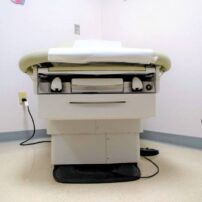 October is National Physical Therapy Month, and Kitsap County physical therapist Hayley Siegenthaler wants to remind community members about the important role improved and restored movement has on well-being.
October is National Physical Therapy Month, and Kitsap County physical therapist Hayley Siegenthaler wants to remind community members about the important role improved and restored movement has on well-being.
“Movement is central to a person’s quality of life, no matter the age or personal hurdles,” says Siegenthaler, doctor of physical therapy at Kitsap Physical Therapy and Sports Clinics. “Young athletes, expecting and new moms, white- and blue-collar workers, outdoor enthusiasts, seniors intent on maintaining personal independence — it all centers on staying optimally mobile. That’s what we provide as physical therapists.”
According to the American Physical Therapy Association, physical therapists are highly educated, licensed health care professionals who exist to help patients reduce pain and improve or restore mobility. In many cases, they do this without the need for expensive surgery or the long-term use of prescription drugs.
“Our bodies crave movement — we need movement,” Siegenthaler says. “Physical therapists exist to ensure that everyone, no matter what stage of life, is able to reach their potential when it comes to living active, mobile and functional lives.”
This, of course, includes post-injury and surgical rehabilitation. But physical therapy is much more than that. Physical therapists are specially trained and licensed to improve people’s lives through the treatment of a number of ailments you may not have previously suspected, she notes.
These include:
Headaches: Following a thorough evaluation, a physical therapist (PT) can treat chronic, tension-type headaches. This is the most common headache disorder, according to the World Health Organization.
A PT can identify the cause of these headaches, such as muscle tension, joint dysfunction in the neck or jaw, poor posture or stress. The therapist then works with you to improve mobility, strength, posture and daily work and home routines.
Prenatal and postpartum care: PTs can offer relief for expecting mothers experiencing pain and discomfort in the back, hips and legs through treatment and exercise.
After delivery, physical therapy is an essential part of recovery. A PT can assist in treating back and pelvic pain while helping new moms strengthen their bodies for the rigors of motherhood. PTs also help moms get back to living an active life and, if they are athletes, competition.
Oncology: A PT can assist with many different side effects of oncology management and treatment, including lymphedema, fatigue, lost range of motion, etc.
Balance, dizziness and vertigo: Physical therapists can assess your balance and risk of falls, then provide treatment (e.g., strength training, flexibility or range of motion exercises) to help improve balance.
Many physical therapists are also specially trained to treat positional vertigo. For some patients, this can be successfully treated in a single visit.
Athletic enhancement: From weekend warriors to elite athletes, physical therapists work with active individuals to help them move better, train better and realize their greatest potential as competitors. PTs can provide movement analyses, establish a better training regimen and assist with equipment selection and adjustments (e.g., shoe orthotics or bike fitting).
According to Siegenthaler, clients don’t need a physician’s referral to directly access physical therapy services, unless your insurance plan requires it. Contact the PT staff at Kitsap Physical Therapy and Sports Clinics to learn more.






















